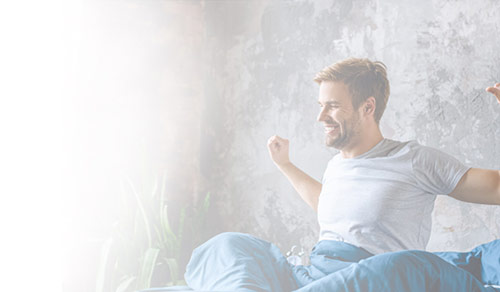
Sleep Apnea and COVID-19 Q&A
We’re still learning about COVID-19 and its impact on PAP therapy and usage. This Q&A with Dr. Rafael Pelayo, M.D., SleepQuest’s Medical Affairs Consultant, provides answers to questions we have received.
Can CPAP equipment be used as a ventilator for a patient with pneumonia?
No. There is no substitute for a ventilator. Neither CPAP nor Auto CPAP and bi-level/BiPAP should be considered for COVID-19 pneumonia treatment.
If I don’t have COVID-19 symptoms, should I continue to use PAP therapy?
Yes. Keep using your PAP device as recommended. Also, clean masks daily and devices weekly.
If I have COVID-19 symptoms or have been diagnosed with COVID-19, should I continue to use PAP therapy?
Yes. However, a Full-Face mask with an in-line filter should be considered to decrease the spread of the virus to other family members. This filter can be purchased here.
Please note, neither the in-line filter nor the Full-Face mask are treatments for COVID-19, nor are they a substitute for social distancing. The filter will sit between the tube and the mask.
If I’m using an in-line filter, do I need to make any changes to my PAP device?
Yes. There is a setting with most PAP devices that will need to be adjusted. If you change to using an in-line filter, you will need to contact SleepQuest to change this setting for the device. Please call us at 1-800-813-8358 (9AM to 5PM, Monday – Friday).
NOTE:
Philips Respironics Dreamstation PAP devices do not require an adjustment.
Patients using an in-line filter are also advised to turn off their humidifier; this is because the water may damage the filter.
If I’m using an in-line filter, how often should I change it?
The in-line filter should be changed daily, at a minimum weekly.
Important:
Any person who has mild respiratory symptoms due to the COVID-19 virus should contact their physician. If they have been informed by their physician to stay home, it is best that they self-isolate from other non-infected people in their home. They could also consider sleeping in a different room from their partner.



